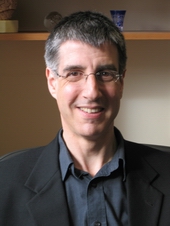This year's Francis Crick Lecture will be given by Professor Daniel Wolpert from the Department of Engineering.
The Francis Crick Lecture is a prize for outstanding biologists and was established in 2003 following an endowment by Dr Sydney Brenner CH FRS, joint winner of the 2002 Nobel Prize in Physiology or Medicine.
Daniel is developing Engineering for the Life Sciences here in the Department, co-ordinating research and teaching that relate to the interplay between Engineering and the Biological and Medical Sciences. Engineering for the Life Sciences is a key theme within the Department's strategy and offers a significant opportunity as the demand grows for a quantitative mechanistic understanding of biological systems.
The effortless ease with which we move our arms, our eyes, even our lips when we speak masks the true complexity of the control processes involved. This is evident when we try to build machines to perform human control tasks. While computers can now beat grandmasters at chess, no computer can yet control a robot to manipulate a chess piece with the dexterity of a six-year-old child. A major factor that makes control hard is the uncertainty inherent in the world and in our own sensory and motor systems. Daniel will explain how the brain deals with this and demonstrates that a key feature of skilled human motor performance is the ability of the brain to perform optimally in the presence of uncertainty.
This lecture is free. No tickets or advance booking is required.
Thursday 8 December 2005 at 6:30pm
Location: The Royal Society
Address:
6-9 Carlton House Terrace
London
SW1Y 5AG


